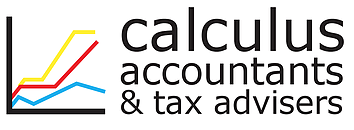

Services
Welcome
Calculus Accountants and Tax Advisers Limited is a small chartered certified accountancy firm servicing the businessses and charity communities across the country but principally in London, Essex and Hertfordshire.
Our goal is to provide our clients with good quality advice at competitive fees.
To ensure that we provide a good quality service, we invest in continuous training and development through membership of the Mercia Training Group.
See our primary services on the services section of the website



Small businesses:
Accounts, tax planning and compliance, management accounts and cashflow forecasts, VAT returns and payroll, Companies House returns
You will find the latest information about us on this page. Our company is constantly evolving and adapting to new developments be they economic, technological or regulatory. We provide range of services to help our clients grow and adapt to the changes in the business environment.
Our mission is to provide the best solution that helps everyone and as efficient and value for money service.
Thank you for visiting our website. If you want to contact us, please fill the contact form on on the contact page.
Tax advice and compliance:
Inheritance and capital gains tax planning, income and corporation tax returns, remuneration planning
Charities:
Accounts and assurance: independent examination, grant certification, governance reviews, finance training for staff and trustees

Small business & charities accountant
Calculus Accountants and Tax Advisers Limited is a small accountancy firm servicing the businesses and charity communities across the country but principally in London, Essex and Hertfordshire.
Our goal is to provide our clients with good quality advice at competitive fees.
The business was originally founded in 1992 as a partnership working from offices in Loughton and incorporated as Calculus Accountants and Tax Advisers Limited in 2008. We have a wide range of clients covering commercial businesses, private clients, charities and volunteer sector organisations.
Our commercial clients include companies in the construction industry, mail order, IT software and services, film production, property and other sectors.
Our charity sector clients cover housing, youth and community projects as well as churches.
We also have sector specialisms: doctors, dentists, not for profit and family businesses including succession planning.
We also act for a number of personal tax clients for whom we prepare their tax return and supporting accounts. These include a number of medical practitioners, independent consultants, high paid employees, landlords, high net worth families, ministers of religion and pensioners needing to reclaim overpaid tax.
About us
Tax advice:
Inheritance tax planning
Remuneration and chargeable gains planning
Services



Charity accounts and independent examination:
Preparing accounts to follow the Charities SORP and Charities Act requirements
Independent examination to comfirm accounts agree to the charity's records and comply with the statutory requirements
Small Businesses:
Bookkeeping & Management Accounting:
Writing up of accounting records
Preparation of VAT returns
Quarterly management accounts
Payroll advice
Companies:
Preparing Statutory Accounts
Corporation Tax
Online filing for companies house & HMRC
Company Secretarial:
Companies House Annual Return & filing
Board & AGM Minutes
Maintaining statutory books & registers
Individuals:
Personal Tax returns
Rental property accounts
Sole trader/contractors accounts
Partnerships:
Partnerships accounts
Partnership tax returns
Sylvia Lambden FCCA
Director
Works with a range of clients helping them run their businesses and comply with their obligations and regulations in respect of accounts, tax and VAT. Many years experience in the film industry including credits as production accountant. See her LinkedIn profile: https://www.linkedin.com/in/sylvia-lambden-79774ba9/
People
James Lambden FCA CTA
Director
Works with a range of clients helping them run their businesses and comply with their obligations and regulations in respect of accounts, tax and VAT. Many years experience as finance director and in not for profit sector. See his LinkedIn profile: https://www.linkedin.com/in/james-lambden-78126225/
Contacts
We see clients and potential clients by appointment rather than drop in so please contact us by e-mail or telephone to arrange a meeting to discuss your accounting requirements
Address:
5 Priory Road
Loughton
Essex
IG10 1AF
Phone:
+44 020 8508 8523
E-mail:
info@calculusaccountants.com
Charity Sector Update
INTRODUCTION
The Charity Commission is primary regulator of the charity sector in England and Wales and issues guidance to charities in a number of ways:
- In relation to urgent or emerging matters is publishes alerts - see below
- It issues guidance in relation to revisions the regulatory returns required from charities - see changes to annual return below
- It publishes new guidance in response to new legislation - see Fund Raising Standards below
- It publishes best practice guidance which it expects charities to adopt - see Code of Governance below
All registered charities and their trustees need to be mindful of the Charity Commission’s guidance issued as alerts in recent months.
CHARITY COMMISSION ALERTS
30 November 2018: Alert for charities - fundraising and postal stamp fraud
3 December 2018: Alert for charities operating in Syria or Turkey about aid passing through the Bab Al-Hawa crossing
7 December 2018: Regulatory alert issued to charitable think tanks
14 December 2018: Alert for charities – risk of CEO fraud through Christmas gift cards
2 May 2019: Alert for charities – cyber-crime and how to report to the Charity Commission
These alerts have been issued in response to specific cases the Commission has become aware of, many are fraud related either data security or financial in nature and serve to emphasise the need to be vigilant in these areas.
FUND RAISING STANDARDS
Charities that have occasional public fund-raising campaigns or street collections need to be aware of the legal framework.
The Charities (Protection and Social Investment) Act 2016 came into effect on 1 November 2016 and only applies to charities in England and Wales where the charity requires a statutory audit (where its income exceeds £1,000,000). The disclosure requirements relate to the Annual Report and are mandatory for financial years beginning on or after 1 November 2016. The requirements are summarised below.
Where the charity (or any person on behalf of the charity) raises funds from the public, a statement for each of the following in relation to the year:
approach taken by the charity or by any person on behalf of the charity for the purpose of fund-raising, in particular whether a professional fund-raiser /commercial participator carried out those activities;
- whether the charity or any person acting on behalf of the charity was subject to an undertaking to be bound by any voluntary scheme for regulating fund-raising, or voluntary standard for fund-raising in respect of activities on behalf of the charity and, if so, details of the scheme or standard;
- any failure to comply with the scheme or standard mentioned in (ii) above;
- whether the charity monitored activities carried on by any person on behalf of the charity for the purpose of fund-raising, and, if so, how it did so;
- the number of complaints received by the charity or a person acting on its behalf about activities by the charity or by a person on behalf of the charity for the purpose of fund-raising;
- what the charity has done to protect vulnerable people and other members of the public from the following behaviours in the course of or in connection with fund-raising activities:
- unreasonable intrusion on a person’s privacy;
- unreasonable persistent approaches for the purpose of soliciting or otherwise procuring money or other property on behalf of the charity;
- placing undue pressure on a person to give money or other property.
For charities with income is above the statutory audit threshold of currently £1,000,000 (or £500,000 in Scotland) these disclosures are mandatory and are indicative of good practice and fund-raising policies and procedures should comply with the Charities (Protection and Social Investment) Act 2016. For charities with income below the audit threshold these disclosures are enclouraged.
CODE OF GOVERNANCE
The Charity Commission has published two versions of a Code of Governance for large and small charities, large charities being those with income above £1,000,000 requiring a statutory audit under the Charities Act 2011.
As these have both been issued for more than a year, charities are expected to have identified where they do not comply with the respective code of governance, and either have a plan in place to achieve compliance or have appropriate alternative arrangements in place. In either case the charity’s review should be documented.
Both codes are based on seven pillars with recommended practice and Trustees will be required to comply or state the alternative arrangements they have made. The seven pillars are:
- Organisational purpose
- Leadership
- Integrity
- Decision Making, Risk and Control
- Board effectiveness
- Diversity
- Openness and accountability
CHARITIES SORP (FRS 102) UPDATE BULLETIN 2
(affects periods commencing on or after 1 January 2019)
The Charity Commission for England and Wales together with the Scottish Charity Regulator (OSCR) and the Charity Commission for Northern Ireland published the SORP Update Bulletin 2 on 5 October 2018. This is to bring the Charity SORP in line with the amendments to FRS 102 following the Triennial review in 2017. Copies of the Bulletin can be downloaded from the Charity Commission website: http://www.charitiessorp.org/media/646440/update-bulletin-2.pdf
The amendments are set out in sections 3, 4 and 5 of the Bulletin:
Section 3 Clarifying amendments: these are consistent with the SORP and are applicable immediately
Section 4 Significant amendments: these are likely to have an impact on the accounts of charities
Section 5 Other amendments: these are likely to have an impact on a limited number of charities
Sections 4 and 5 of the Bulletin is effective for all accounting periods commencing on or after 1 January 2019, earlier adoption is permitted so long as both sections are adopted at the same time and early adoption would not be contrary to Charity or Company law in the jurisdiction of filing.
Making Tax Digital
INTRODUCTION
Making Tax Digital (MTD) will apply to all VAT registered entities from April 2019 and HM Revenue and Customs plan to role this out to all businesses from 2021 depending on how the initial implementation goes.
In summary this will require all VAT registered entities to submit to HMRC, together with their quarterly VAT Return, a digital file listing all the transactions for the quarter. This will include the transactions included on the VAT Return (e.g. sales and purchase invoices) and those not included (e.g. salaries and wages and other bank transactions).
The purpose of MTD is to enable HMRC to move towards collecting tax, income tax and corporation tax on a quarterly basis.
WHAT DOES THIS MEAN IN PRACTICE?
HMRC have issued a new VAT Notice:700/22 MTD for VAT. This applies to all businesses (and other VAT registered entities) with taxable turnover above the VAT registration limit for periods starting on or after 1 April 2019.
Note other businesses may join voluntarily.
There is a practical issue for those who have voluntarily registered for VAT with taxable turnover below £85,000, or where turnover is declining, should you remain VAT registered? If a business de-registers than it will not fall within MTD with all the additional compliance requirements.
NEW SOFTWARE WILL BE REQUIRED
The filing aspects of MTD will require “API” enabled accounting software (API = Application Programming Interface) and / or bridging software to provide the digital links to transfer the data.
The main accounting and bookkeeping software providers have undertaken to be ready for MTD these include: Sage, QuickBooks, Xero, Clear Books. There is a list of 35 suppliers on the HMRC website. For users of these packages there is little to do now but wait for the upgrade and then learn how to prepare the files.
WHAT ABOUT ENTITIES WHO USE SPREADSHEETS?
It will be possible to use spreadsheets with bridging software to prepare the file for submission.
HOW CAN I CORRECT AN ERROR?
In principle businesses will submit four quarterly returns and then an annual adjustment, so the annual adjustment can be used to correct the previous submissions.
However, if a large error is found then this should be notified directly to HMRC as is currently the case and the MTD submissions are not adjusted.
WHAT DATA NEEDS TO BE MAINTAINED AND / OR SUBMITTED?
All entities within MTD must have a digital record of:
- Business name
- Address of principal place of business
- VAT registration number
- Any VAT accounting schemes used
- For each supply made (i.e. sale)
- Time of supply (tax point)
- Value of supply (excluding VAT)
- Rate of VAT charged
- For supplies received (i.e. purchases)
- Time of supply (tax point)
- Value of supply (excluding VAT)
- Amount of input tax claimed
Other records to be kept:
- Copies of invoices – either paper or electronic
- Some records need to be in original form (see VAT Notice 700/21 Record Keeping for further information)
Details of any VAT return adjustments (e.g. Capital Goods Scheme, Partial Exemption)
- Record the total of each type of adjustment
- Can be entered manually into MTD software (not clear if this is part of upload or within accounts package)
- Other adjustments may need to be used for Special VAT Schemes
- Retail schemes
- Flat rate scheme
- Gold special account scheme
- Margin schemes (e.g. second-hand goods, tour operators)
PRACTICAL QUESTIONS:
- I currently keep my accounting records on Excel do I need to get an accounting package? If so how much with the cost in terms of software and training?
- Do I want to be able to review the data before it is submitted to HMRC? If so using link software and spreadsheets may be better than exporting directly from the accounting package
- Can I de-register and so avoid joining the scheme?
Home Working
INTRODUCTION
An increasing number of people are working from as advances in information technology make it easier to access business systems from anywhere.
Home workers are often unclear what tax relief they can claim for working from home. Like many tax questions the answer is not straight forward and differs depending on whether the individual is self-employed or an employee.
SELF EMPLOYED
The covers all unincorporated businesses so covers sole traders and partnerships. As for all self-employed business expenses the “wholly and exclusively” test must be passed, which for residential costs there is likely to be an element of duality, i.e. the expense has both business and personal elements which can’t be separated.
Past tax cases have distinguished between those with a base of operation e.g. a shop or office, and itinerate workers based at home. The expense claim tax rules are more generous for itinerate workers. Where you have a base of operation, you need to be able to demonstrate that there is a business reason requiring you to work from home rather than it being a personal choice.
Home office / garden “pod”: what can be claimed?
As these are works to a residential property capital allowances are not available in respect of any structural works. Capital allowances are likely to be available on costs of wiring both electrical and telecoms / data, office furniture and moveable partitions.
General house costs: what can be claimed?
A proportion of heating / electricity / council tax / mortgage interest or rent / internet and telephone charges. The HM Revenue and Customs examples in the Business Income Manual [BIM47825] are helpful where rooms are partly used for business and partly residentially.
One room within house with ten rooms used 5 hours a day for business would give a proportion of: 1/10 x 5/24 = 2%! Although where you can demonstrate that usage has increased by an amount e.g. heating costs then that is a reasonable basis for a claim.
With mortgage interest and rent, we have been cautious in claiming a proportional deduction for these as the costs do not it is difficult to demonstrate an increase due to working from home.
For self employed taxpayers using the simplified expenses option on their tax return can claim a flat rate deduction depending on the amount of time spent working from home:
Hours worked at home per month Monthly£ Annual£
Less than 25 per month 0 0
Between 25 and 50 per month 10 120
Between 51 and 100 per month 18 216
More than 100 per month 26 312
CGT implications: an individual’s / a couple’s main home qualifies for principal private residence relief which in most cases means any gains arising during the period of ownership are exempt from capital gains tax. However, if any part of the property is used exclusively for business purposes then that proportion of the property will not qualify for principal private residence exemption.
LIVING ON BUSINESS PREMISES: e.g. guest houses, small care homes, pubs
In this case apportionment works in reverse and business expenses are restricted for personal residential use. For those using the simplified expenses for completing their tax return can follow HMRC’s standard private use add backs:
Number of occupants Annual private use adjustment
£
1 350
2 500
3 and over 650
EMPLOYEES
There are two groups:
- Those required to work from home, and
- Those who choose to work from home (who can claim very little).
For employees, an expense is deductible if it has been incurred “wholly, exclusively and necessarily” in the performance of the duties of employment. This is a more stringent test than for the self-employed:
- Additional costs of home working may be claimed, but not a proportion of costs which would be incurred anyway. For example: gas and electricity, telephone can be claimed.
NB. Where it is not practical to calculate the exact proportion HMRC will accept a claim of up to £15 per month / £4 per week without further query.
- Employers can make tax-exempt payments for the extra costs of working from home e.g. heating and lighting, insurance, telephone and internet, and business rates if these arise.
Costs that remain the same whether an individual is working from home or not cannot be included in re-imbursement or claims. For example, mortgage interest, rent, council tax and water rates.
Also excluded are costs that put an employee in a position to work from home e.g. building alterations, furniture and office equipment. However, an employer can provide office equipment and furniture tax free under s.316 ITEPA 2003.
Employers may also pay an allowance up to £4 per week without the need for supporting paperwork. If the re-imbursements are higher than £4 per week these must be justified, and the employee must keep detailed records to back up the claim, alternatively the employer may agree a higher rate with HMRC.
To qualify employees must have a formal homeworking agreement, showing that they are required to work from home.
PERSONAL COMPANIES
Where the employee is a director a company which they either control or have a participating interest in, they can also benefit from the home working expense claims where they are required to work from home. If the company has no business premises, then there should be difficulties in justifying the claim.
However, the extent of the claim will be on the same basis as for employees required to work from home generally.
What about the £1,000 annual Property Income Allowance?
You cannot use the £1,000 property income allowance to cover rent received from the company, as it is not possible to use the allowance between connected parties.

